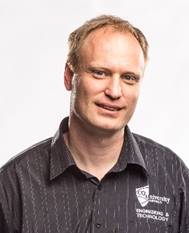[Lecture] Virtual testing, digital twins and roadworthiness acceptance of rail vehicles

Speaker: Professor Maksym Spiryagin, Centre for Railway Engineering, Central Queensland University, Australia
Time: 14:00, November 15, 2022, GMT+8
Venue: Tencent Meeting ID: 264 169 732
Abstract:
To ensure safe operation of railway systems, regulators have established standards that outline the dynamic behaviour that the vehicles should adhere to in terms of their kinematic responses to a variety of track irregularities, curves, and other track features. Most of the established standards assume a dry friction coefficient value and other mechanical properties of wheel and rail materials. To resolve this issue in terms of their applicability for virtual testing and digital twin studies, it is necessary to perform the laboratory estimation of the mechanical properties, the actual dry friction coefficient, and the slip versus traction coefficient relationship that a combination of those wheel and rail materials are capable of achieving. In this way it is possible to produce more accurate vehicle dynamic simulation results and validation of key parameters used in roadworthiness acceptance studies for rail vehicles. The mechanical properties and contact behaviour should be characterised in the experimental laboratory program and then it should be used as inputs for the wheel-rail coupling model in a vehicle dynamic simulation. This allows the actual mechanical properties and the slip versus dry friction behaviour of specific wheel and rail material combinations to be used in the vehicle dynamic simulations and to improve accuracy of digital twins used to assess rail vehicle roadworthiness.
Biography:
Professor Maksym Spiryagin is the Deputy Director of the Centre for Railway Engineering at Central Queensland University. Professor Spiryagin’s involvement in academia and railway industry projects includes many years of research experience in locomotive traction, vehicle dynamics, contact mechanics, wear, mechatronics, digital twin technique and the development of complex systems using various approaches.


